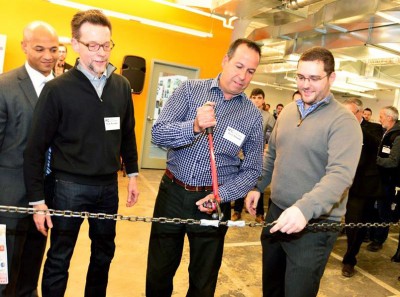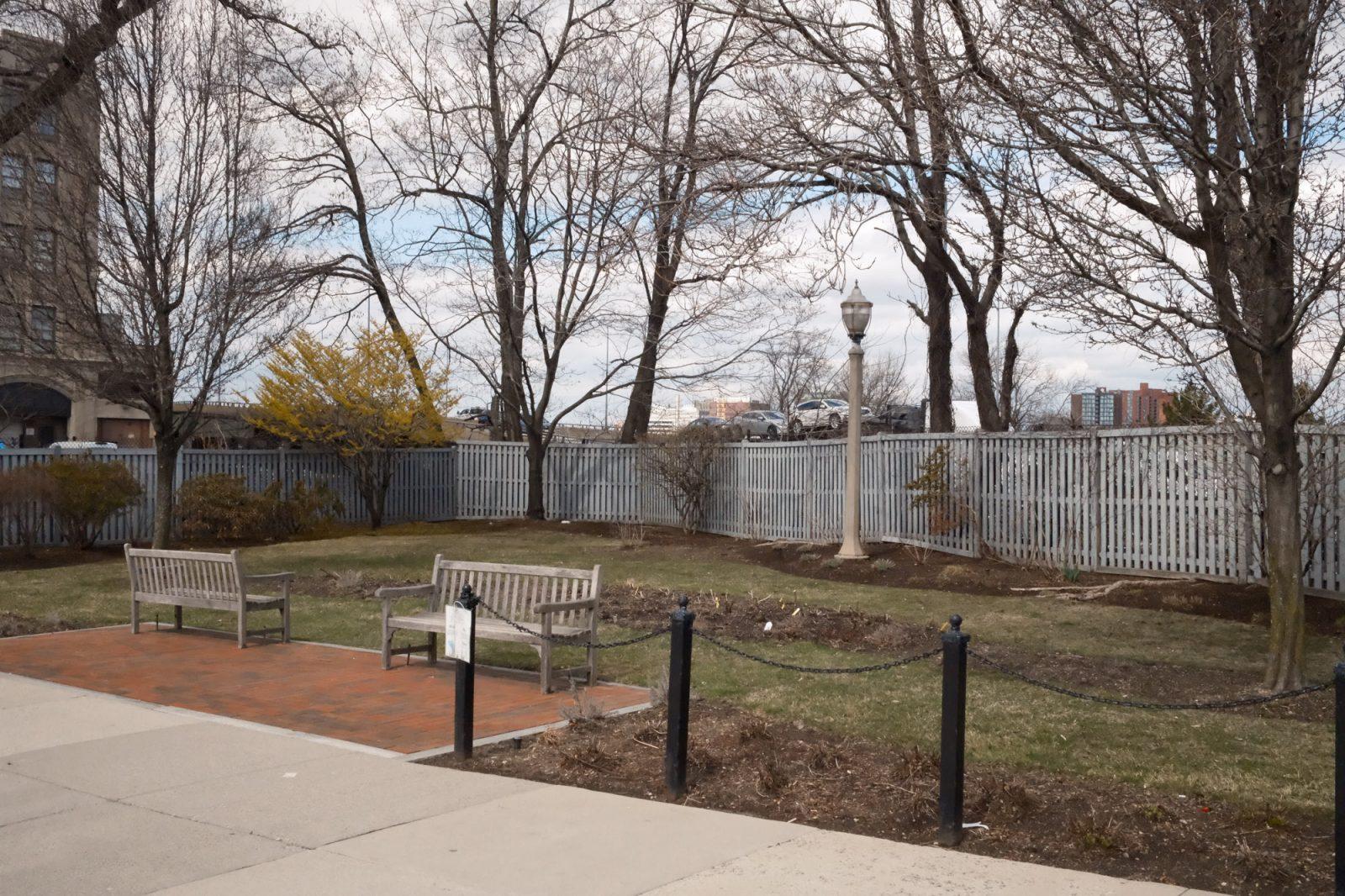
Oftentimes, the most difficult part of launching a tech venture is finding something physical to show for it. To address this problem, on March 10, startup accelerator MassChallenge launched its hardware “makerspace” called MADE@ to facilitate designing and prototyping for hardware start-ups.
The 5,000-square-foot space, located in the Seaport District, will be accessible to alumni of the MassChallenge program, future MassChallenge participants and startups outside of MassChallenge, said Matt Murphy, program manager at MADE@.
“We have the equipment for electronics, manufacturing, assembly and testing as well as 3D printing and access to the general workspace,” Murphy said.
Murphy said that sponsors Jabil, Continuum, Dragon Innovation and the Healthcare Transformation Lab at Massachusetts General Hospital played integral roles in the development of the space.
“Jabil has provided us with large scale manufacturing, with mentorship and advice for startups,” Murphy said. “Continuum did the layout of the space. They’ve worked with other makerspaces and they have the knowledge.”
With so many hardware startups having been through the MassChallenge program, Murphy said that the group saw a need to equip them with the tools that will help them develop their devices.
“This program is developed to fit the generic needs of a hardware startup, specifically those that are medical devices, consumer electronics, wearable electronics,” Murphy said. “Every year, MassChallenge sees unique companies so the MassChallenge hardware lab will bring new mentors, new expertise, based on who is accepted to the program in the summer.”
One company that would find utility in the makerspace is Neumitra, said Robert Goldberg, the company’s co-founder. An alumnus of the MassChallenge program, Neumitra is a company dedicated to quantifying brain health.
Though Neumitra tried manufacturing a watch valued at $1,500, their focus has shifted to making biomodules that integrate into existing watches and jewelry.
“We see our role as adding biology to watches and bracelets,” Goldberg said.“We don’t think people necessarily want to wear technology on their sleeve. It is a conversation starter, but you get into private issues quickly. It’s better to have it blend in.”
As a MassChallenge participant, Goldberg explained, one of the challenges he faced was finding the technology needed to develop his company.
“The hardest part was having a place to build, and we were doing that out of the garage – the proverbial garage, if you will,” he said. “So that’s effectively why MassChallenge is so amazing at launching new companies. They give them all the resources they need and they take nothing. They are building and growing great companies.”
At Boston University, students can design products in a similar manner at the Engineering Product Innovation Center. Though in its early stages, EPIC has hosted 500 to 600 students per semester, said Gerry Fine, a professor in Boston University’s College of Engineering. With 3D printers, a machine shop, a materials lab, a carpentry shop and facilities for robotics manufacturing, EPIC is designed to meet the needs for a wide range of projects.
“It is important to have a space where students can learn the principles of product design and manufacturing before they leave here,” Fine said. “There is a growing realization in the United States that product design and manufacturing is important to the economic future and we want to make sure we are contributing to that.”
For Fine, the launch of MADE@ indicates the efforts Boston-area companies are making to provide state-of-the-art equipment and facilities for those who need it, though the material goods must be supplanted with business knowledge for a successful venture.
“I am always in favor of as many of these makerspaces and open shops as we can get,” he said. “Successful innovation requires more than just a shop. It also requires a set of skills, marketing and business skills.”
Learning those skills, though, is key. At MassChallenge, there will also be mentorship for the companies working in the makerspace to help the companies understand the market in which they are trying to innovate, Murphy said.
Murphy believes by combining the technological needs with strong mentorship, MassChallenge will be stronger than ever.
“We had some really great startups in the past years. But we had to outsource a lot of stuff, work in other workshops,” he said. “The idea of having 30 companies here is going to be really exciting, to see them using the space all at once.”


















































































































